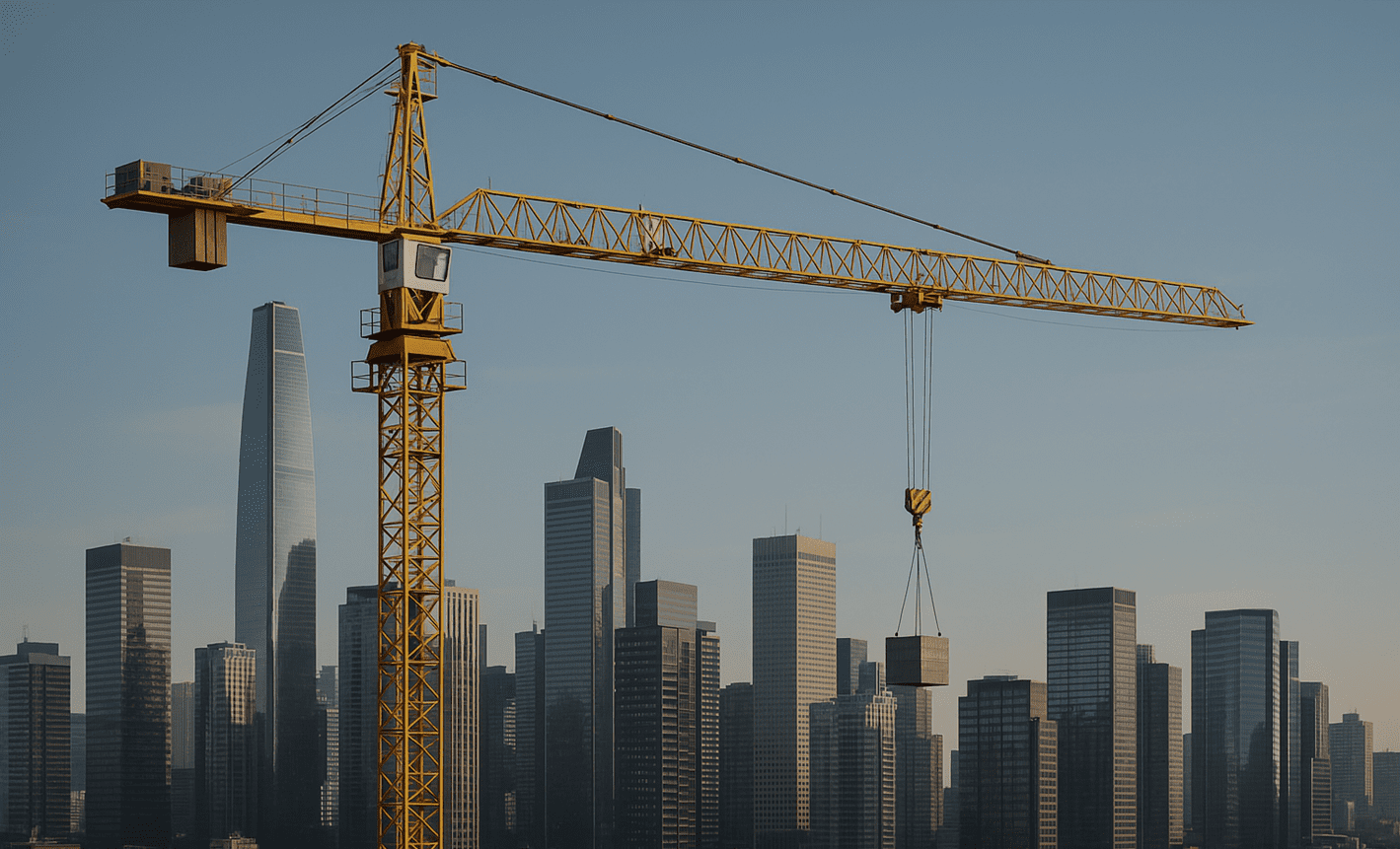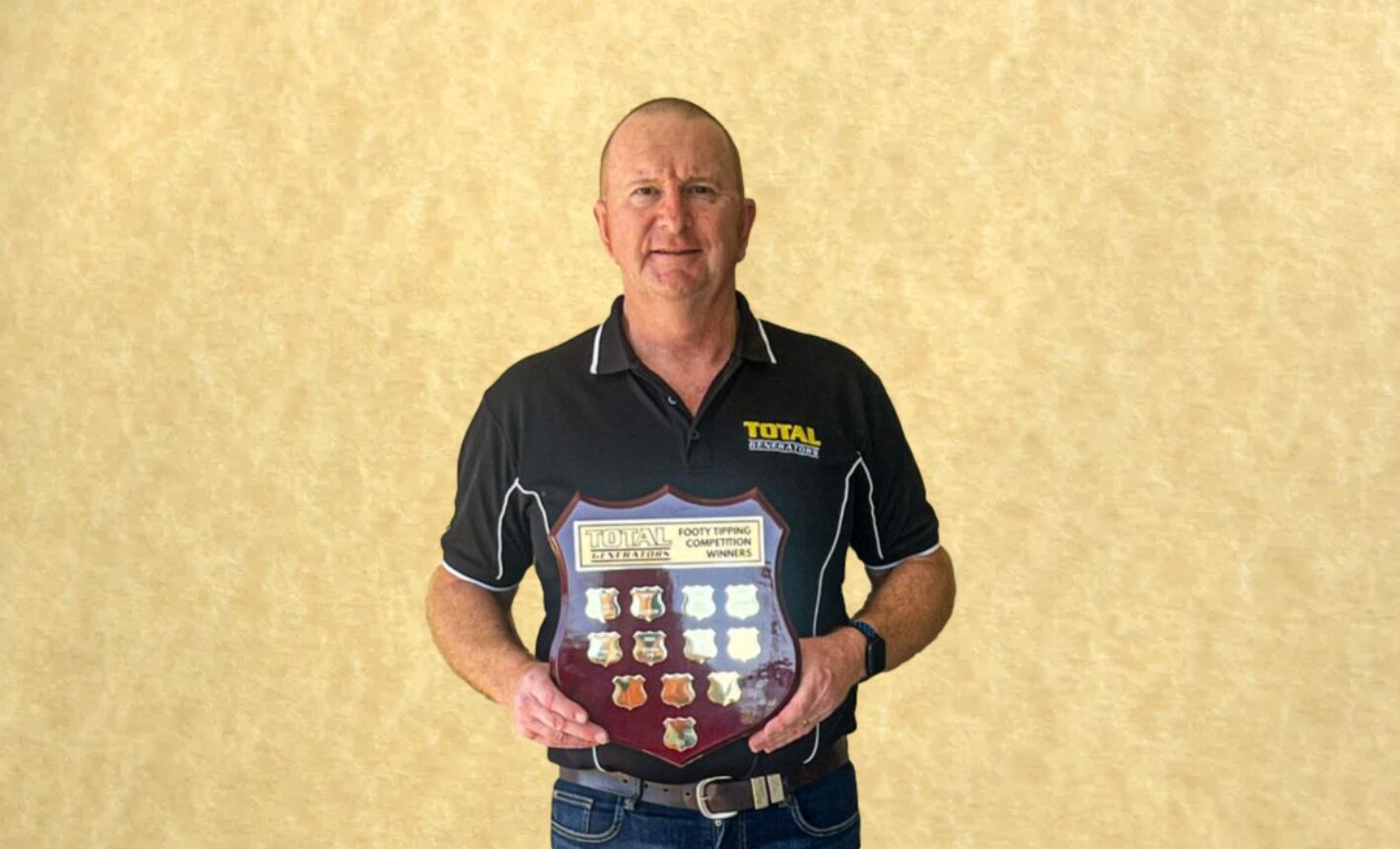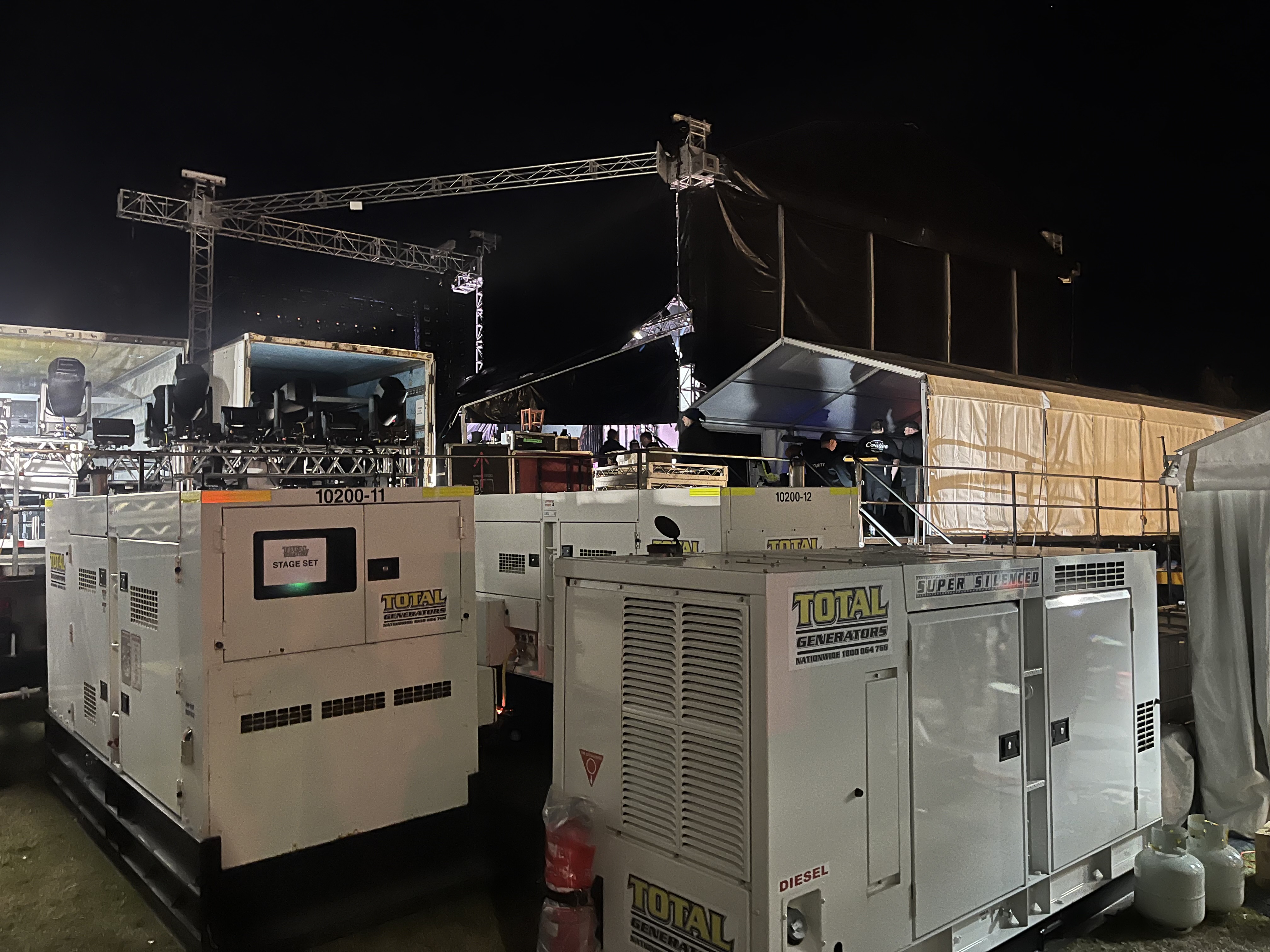
Generator Compliance: Meeting Australian Standards and Regulations
Generators provide a reliable source of power for industries like mining and agriculture, which commonly take place in remote locations far from the main energy grid. If you’re running a healthcare facility, restaurant or data centre, having a backup source of electricity protects sensitive information, perishable food and even people’s lives. Because generators have such an important job to do, it makes sense that they have standards to measure up to for both safety and performance requirements.
Generator compliance means every generator available on the market has standards to measure up to, and that you also have standards to meet when hiring a generator for your own worksite. Adhering to generator regulations involves meeting performance, environmental and workplace safety standards, and it’s also up to you to ask the right questions when choosing a generator for your own work environment.
If you’re looking into hiring a generator, here’s the Total Generators guide to ensuring compliance throughout the process.
Generator Compliance Requirements
In Australia, large-scale generators connected to the power grid need to adhere to the standards set by the Australian Energy Market Operator (AEMO). These include the National Energy Rules (NER) and Generator Performance Standards (GPS). Some key compliance areas include:
Adherence with AS/NZS 3010:2017
AS/NZS 3010:2017 for electrical installations related to generating sets lays out the minimum safety standards a generator should meet. These include a main switch installed at the switchboard to which every generator supply is connected, the installation of an isolator that switches all live (active and neutral) conductors at the generator, and only one MEN connection (neutral-earth) located at the main switchboard.
Performance standards
Generators connected to the power grid must meet AEMO’s performance standards to operate efficiently within the broader power network. Generator compliance with performance standards is measured with the Good Energy Industry Practice (GEIP) concept, which encompasses the components of effective governance, expertise, implementation and performance.
National Electricity Rules (NER)
The National Electricity Rules govern the commercial exchange of electricity from generators to operators and ensure customers don’t pay more than necessary for power.
Professional installation
Permanently connected generators need to be installed by a licensed electrician and meet both AS/NZS 3000 (Wiring Rules) and AS/NZS 3010 electrical standards for safety.
Reporting
AEMO has developed a notice of non-compliance with registered performance standards. When a registered participant identifies a breach or possible breach of generator safety standards, they need to submit it to AEMO so AEMO can assess the implications of non-compliance on the power system and make any necessary adjustments.
There are consequences for not adhering to these regulations. AEMO can impose fines for non-compliance, enforce a restriction on the generator’s output, or monitor and follow up further. To avoid negative ramifications, always thoroughly examine the reputation of the company from which you’re hiring a generator.
The Australian Regulations for Hiring a Generator
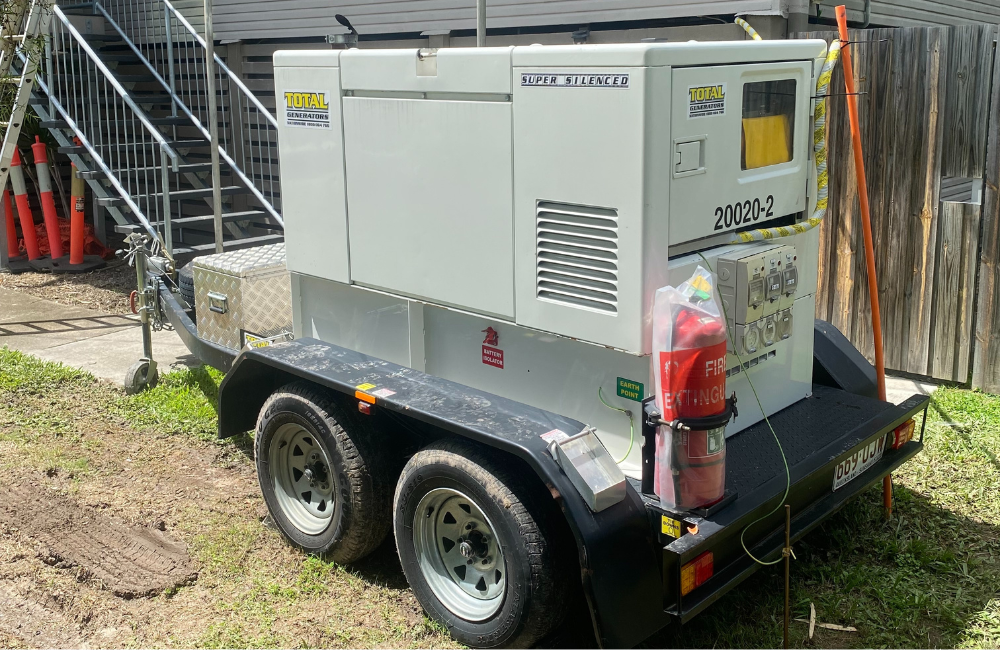
In Australia, hiring a generator also means meeting safety standards. The generator needs to not only comply with Australian standards but also be installed, maintained and operated to the highest levels of safety. Some key aspects of compliance include:
Electrical safety
Generators for hire need to meet the same electrical safety standards as those you purchase. Make sure you have a reputable supplier providing your generator; this makes it a safer bet that it will comply with Australian standards.
Compliance with Australian Standard AS 2790
Generators, especially the transportable kind, should always comply with Australian Standard AS 2790. You can identify complying generators by checking for a Standards Australia StandardsMark on their packaging.
Safe operation
A safe operating protocol is crucial for adhering to legal standards and, more importantly, for protecting your staff and yourself. Some basic principles include always following the manufacturer’s instructions, operating the generator outdoors a safe distance away from doors and windows and ensuring enough ventilation to prevent fumes from building up.
Terms of the hire agreement
As the person hiring the generator, you’re the one responsible for ensuring the generator is right for your purpose and for providing the fuel, oil and routine maintenance. Of course, a good generator company will help you select the model that best suits your needs. Understanding the terms of the hire agreement and who is responsible for measures such as maintenance will ensure a smoother experience when hiring a generator.
Environmental regulations
Both the generator company and the hirer themselves have a responsibility to comply with local environmental guidelines. Factors to consider include emissions standards, regulated waste tracking and management obligations, fuel handling and disposal, and disposal of contaminants, among other relevant standards.
Why These Requirements and Regulations are in Place
Generator compliance is important for safe operation of your generator or power equipment that protects your staff, your consumers and the general public. More detailed, specific reasons for these generator regulations include:
Efficient operations
Adhering to regulations makes the day-to-day running of generators a lot more efficient and keeps the energy supply reliable.
Preventing major incidents
Tight safety standards and regulations help to prevent dangerous accidents and disruptive incidents from occurring.
Managing new technologies
As new technological developments and innovations in energy production emerge, generator regulations assist them in safely integrating with the power system’s needs.
Ensuring accountability
Having standards, checks and balances for generator compliance helps keep everyone involved accountable for their role in maintaining workplace safety. This ensures that you, your team and your supplier all take responsibility for generator safety and the right people are held accountable if standards slip.
Protecting your reputation
When power outages put people’s lives at risk or cause potentially sensitive information to leak, it can harm your business’s reputation. Adhering to regulations helps to ensure you maintain your reputation for high safety standards and reliability.
An even playing field
Consistent generator regulations hold all generator users and suppliers accountable to the same standards, ensuring that no one can cut corners or use unsafe practices to gain an advantage.
Hire Your Next Generator from Total Generators
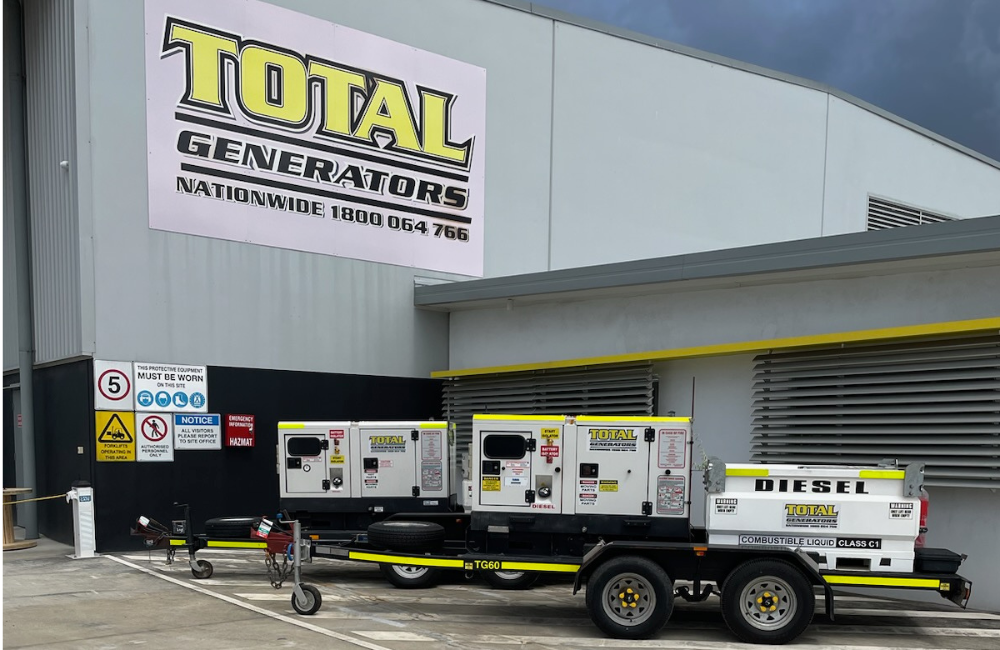
If you’re looking for quality generators that comply with Australian safety standards, Total Generators has the generator range for you.
Our generator rental services are focused on reliability, with our equipment the preferred choice among many of Australia’s strictest safety-focused industries. Our equipment compliance standards have been developed in conjunction with our global client partners to exceed Australian Electrical Standards.
Total Generators also provides a selection of quality generator accessories, including distribution and switchboards, transformers, fuel cells and load banks. Our eye for detail and deep knowledge of the generator industry enable us to consistently provide you with the additional tools needed to complete the job.
Total Generators provides generator rental services from our offices in Brisbane, Cloncurry and Moranbah in Queensland as well as Katherine, NT. When you choose one of our generators for hire, we provide you with access to 24/7 emergency support, routine servicing and maintenance according to OEM specifications, as well as the latest in generator control technology.
To find out more, call 1800 064 766 or get a free online quote with Total Generators.

